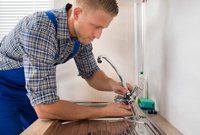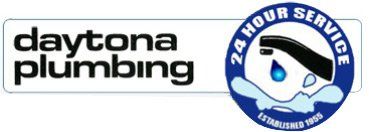Common Plumbing Problems in Each Room of Your New House
Admin • February 13, 2018

Being a new homeowner is a fantastic milestone, but it's also a huge responsibility. However, while homeownership is a challenge, a little extra knowledge will help you turn your new house into a home that will last you for the next several years, at least.
Let's start by looking at one of the most important systems in your home: the plumbing. Below is a basic guide to your new home's plumbing - broken down by room - so you can learn what issues to look out for and when you should call a plumber for help.
Kitchen
The kitchen contains some of your most important plumbing appliances, including the sink, faucet, garbage disposal and dishwasher. Right when you move in, make sure the pipes under the sink are leak-free. If you have a garbage disposal, clean it with a mixture of vinegar, baking soda and hot water.
Take care of your garbage disposal and avoid future problems by keeping hard-to-grind, stringy food products like celery out of the disposal. Only use the disposal while running water simultaneously to prevent breakdowns.
Bathroom
Your bathrooms need a lot of TLC to stay in good repair. Pay careful attention to these potential problems as you inspect your bathroom's plumbing:
- Mold. If the bathroom fan doesn't work, mold could accumulate on the walls, ceiling and tub.
- Clogged Drains. Strands of hair or small items like earrings can fall into the drain and cause clogs.
- Running Toilets. If your toilet runs, gurgles or leaks, you'll pay more in utilities.
Replace broken fans, unclog drains and fix toilets to maintain clean bathrooms that help you save water and money, not lose them.
Laundry Room
Your washing machine is the biggest potential problem in the laundry room, though, you should also keep an eye on any sinks or drains in the laundry room just as you would in the bathroom.
Whether you inherited the washing machine from the previous owner or installed a new one yourself, make sure the hoses are completely sealed. Replace any aging or cracked rubber seals now to avoid leaks down the road. Also, make time to wash your washing machine so it doesn't produce mold, rust or foul odors.
Basements, Storage Closets and Crawlspaces
Basements, crawl spaces and storage closets are prime spots for leaks to develop out of sight. Right after you buy your house and again every few months, check for signs of leaks in out-of-sight, out-of-mind areas. You'll save yourself a world of financial trouble and health problems that can come with mold growth and gradual property damage that stem from leaks.
Pay particular attention to your home's water heater, which most owners install in the basement or in a large storage closet. Inspect the appliance frequently enough that you can catch any small problems before they become bigger issues. In particular, look out for:
- Leaks. Pooled water can cause mold and property damage if it goes unnoticed. Leaks also reduce your water heater's efficiency and waste resources.
- Rattling Sounds. You won't detect a rattle anywhere else in your house but right next to the water heater, so make sure to peek your head in every once in a while to listen. Rattling indicates mineral deposits that need to be flushed from the tank.
Even if you don't hear rattling noises from the water heater, it's important to flush the appliance once a year. Flush it more frequently if you have hard water.
Call a Plumber
If you've just moved in, there's no better time than to make friends with your local plumber. Whether you need help repairing your new home's old plumbing or you want a professional to evaluate your old pipes, give the experts at Daytona Plumbing a call.






